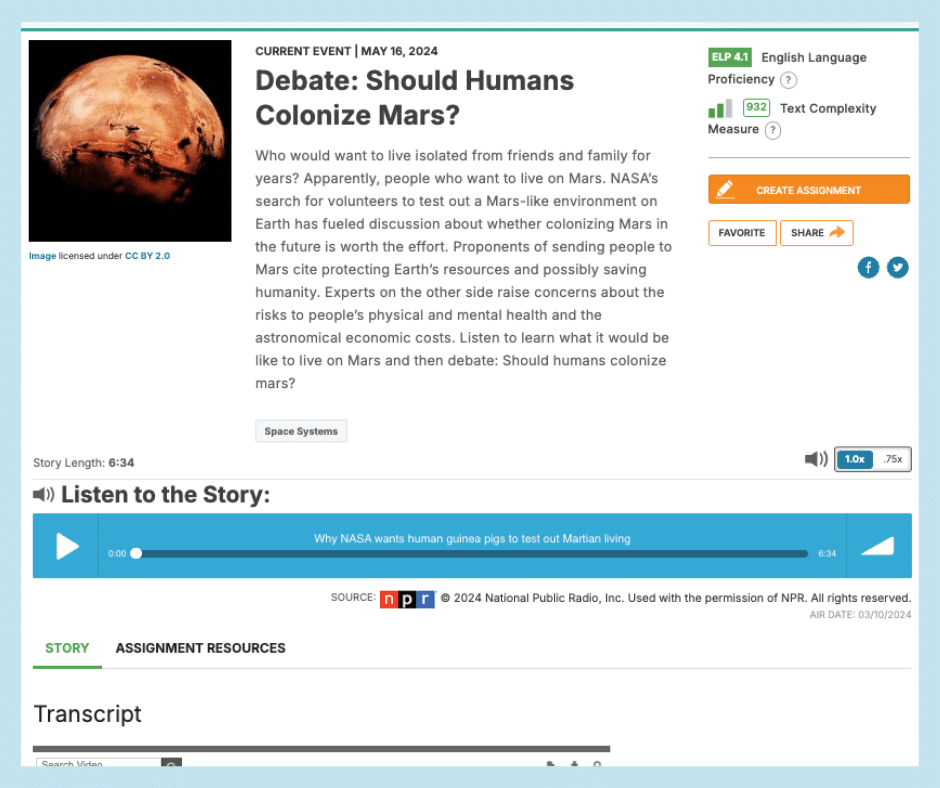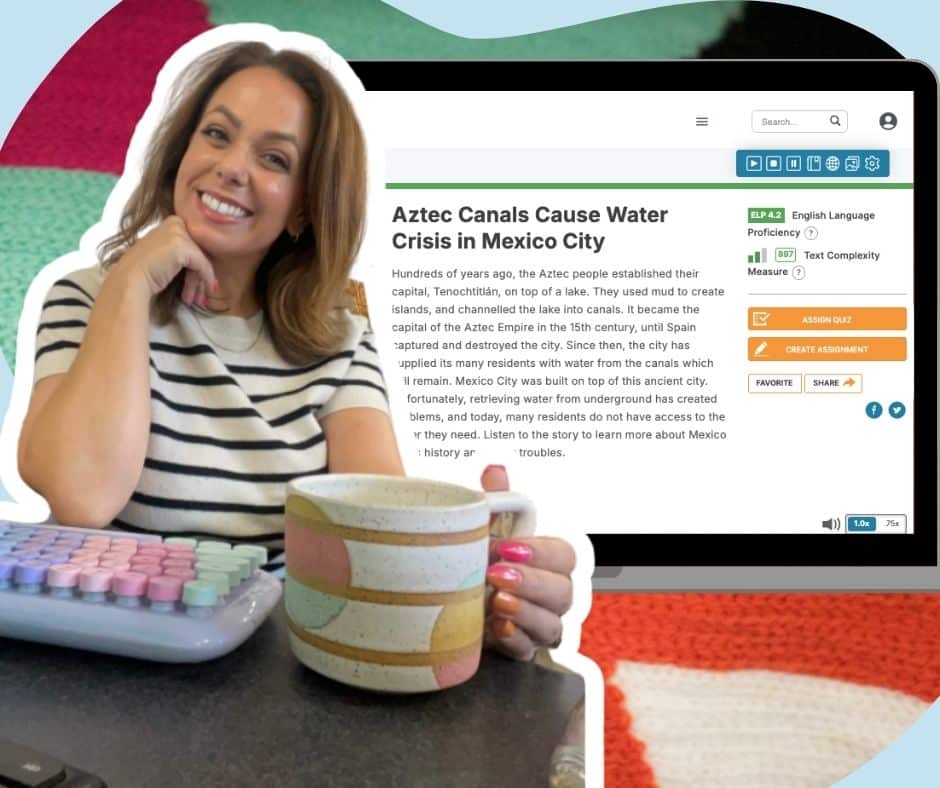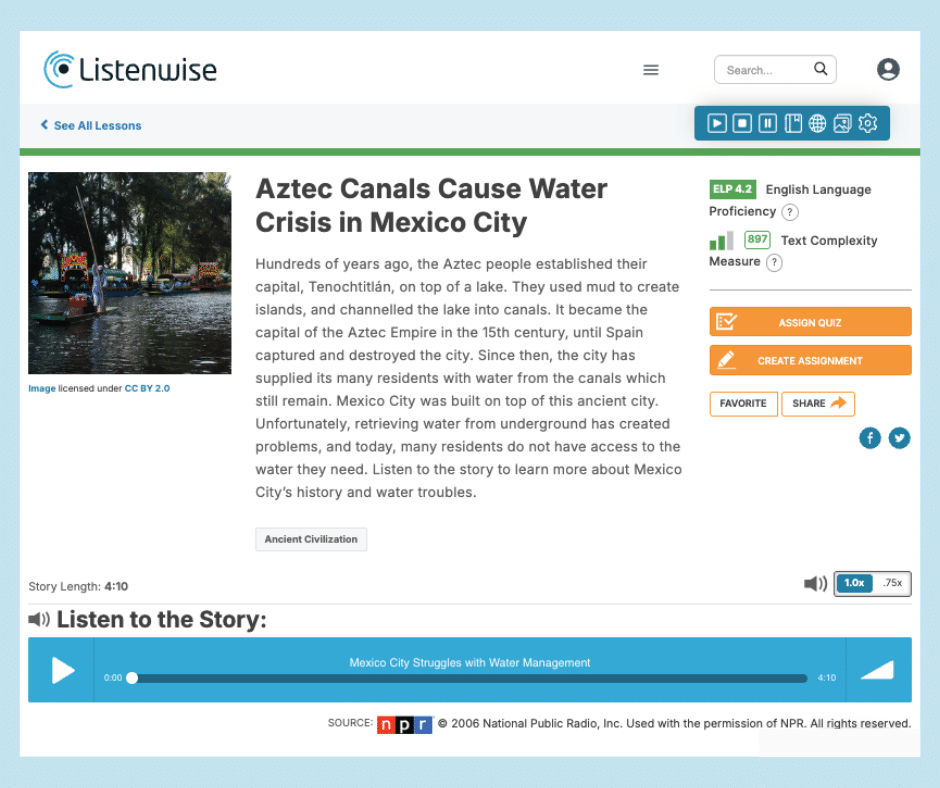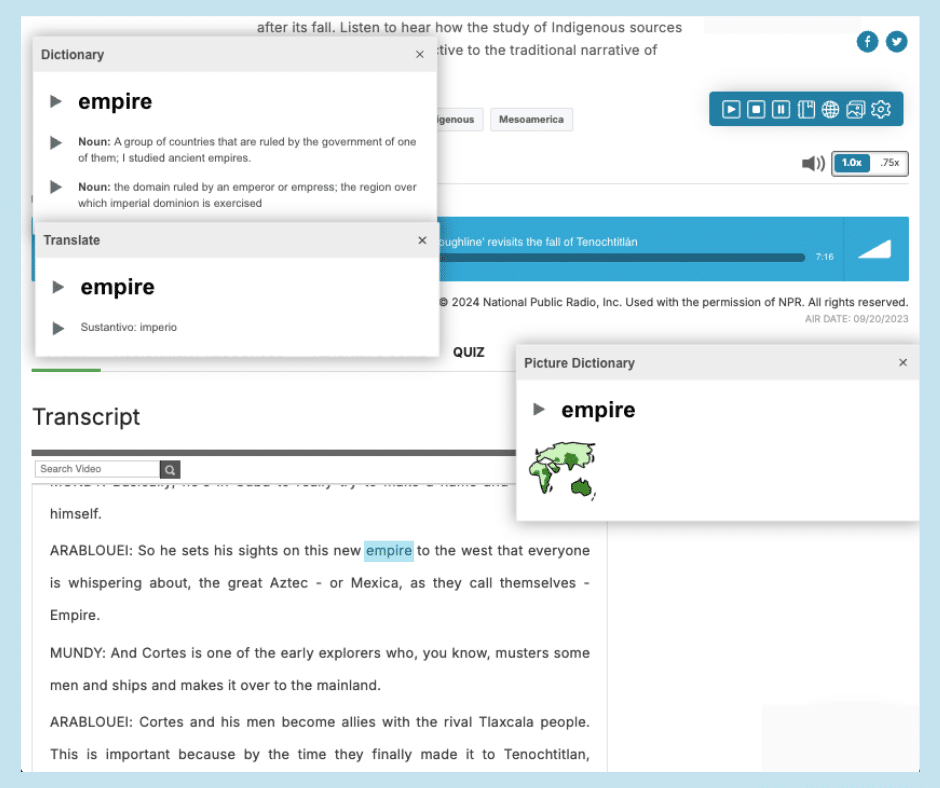Last Updated on October 21, 2025
The following is a guest post written by middle school History and English teacher, Megan DuVarney Forbes. Also known as @toocoolformiddleschool on social media, Ms. DuVarney Forbes is the author of three middle-grade history books.
Giving students the tools to continue pursuing their curiosities after they leave my class is one of my biggest goals as a history teacher. While I was a decent history student in school, I’ve learned so much more from outside real world media sources, particularly podcasts and radio news stories, than I ever learned from a history textbook. This is why I’ve prioritized incorporating these engaging short segments into my curriculum.
The Three Hurdles of Classroom Audio
I’ve tried to incorporate more short podcast episodes and radio segments into my classes, but it can be difficult for every student to access and understand information in this form. I found three potential problems when sourcing my own real world media:
- Vetting: Not all podcasts are accurate or appropriate for the classroom.
- Accessibility: English Learners (ELs) sometimes have trouble following the audio.
- Application: I still need students to actively process and do something with the knowledge that they’ve gained.
Listenwise’s Real World Media Solves These Problems
Listenwise solves all of these problems for me. They have curated high-interest, high-quality collections of stories from real world media on all of the topics that I need to teach my history classes.
For example, when studying the Aztec Empire, students can hear an overview of its history from a National Public Radio story that features interviews with several expert historians. Then they can listen to a recent report from an on-site reporter in Mexico City about how ancient Aztec canals are still providing water to residents.
Finally, we listen to an interview with a food scientist talking about the science of popcorn and how we have found evidence of ancient Aztecs who made it thousands of years ago.
While the information is engaging and entertaining, we are also learning that high-quality news sources bring on expert guests and cite the sources of their information. The clips are generally about five to seven minutes long, but we pack in plenty of skills and good habits in one short audio lesson.
Essential Support for English Learners and Literacy
Many Listenwise stories also come with listening guides so students can take notes while they listen or listen for particular words or phrases in the story. Listenwise also offers interactive transcripts that highlight the words as the narrator speaks them, making it easier for students to follow along. This is very helpful for English Learners!
Listening is a literacy skill just like reading, and we have to provide resources for students to practice it. Listenwise provides great discussion questions and comprehension questions to reinforce the information and to promote further conversations, ensuring students build essential listening and literacy practices.
Building Speaking and Critical Thinking Skills with Real World Media
Teachers know that speaking and listening skills can be the most difficult to build into their lessons, and we spend a lot of time searching for resources and strategies that go beyond reading a passage and writing down answers.
The collection of debate topics on Listenwise is perfect for getting students listening, thinking, and talking. The topics are targeted to the interests of high school and middle schoolers, which is very helpful. My middle schoolers have loved the debates about colonizing Mars, banning social media, and even whether or not text messages need to include punctuation.

All of the debates begin with an expert discussion of the topic that models good speaking and presentation of evidence. Students can’t wait to get started after they hear the topics!
I’m so glad that Listenwise has curated an extensive and trustworthy collection for me to work with. I hope that incorporating these expert interviews and news stories into my history curriculum teaches my students good listening and critical thinking habits that they’ll bring with them into the future.




